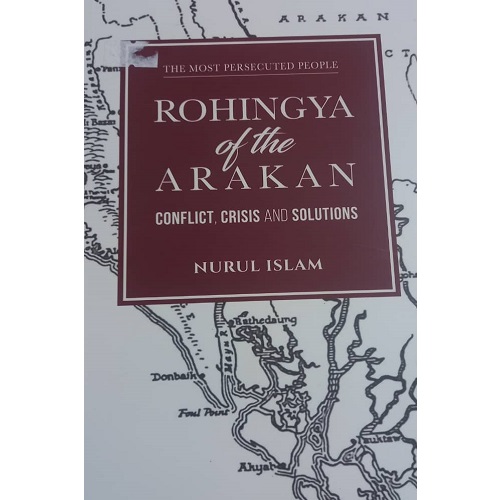-

Rohingya of the Arakan – the most persecuted people: Conflict, Crisis and Solutions – Nurul Islam
₦8,500The Rohingya people have a long history of crisis. The crisis is not an issue of illegal immigration but of intolerance. The Rohingya have faced a continuous process of de-legitimization, systematic persecution and worsening abuses culminating in genocide. Since 1942, intermittent waves of Rohingya have fled to Bangladesh and other countries to escape persecution. The United Nations has described the Rohingya as the most persecuted people in the world. In 2017, hundreds and thousands of Rohingya fled to neighboring Bangladesh when families were massacred, villages scorched, women gang-raped and babies thrown into the flames. The foremost priority of the Rohingya people is to return home in safety, in dignity and with justice. But they cannot return where genocide is still ongoing. There must be credible accountability to ensure victims see justice served and the cycle of violence is not repeated. For a permanent solution the root causes of the crisis must be addressed effectively. Their ethnic identity “Rohingya” and “full citizenship” must be legally recognized and restored. They should be able to peacefully coexist in Rakhine State as equals with their “collective rights’ on par with other ethnic nationalities of the Union of Myanmar.
